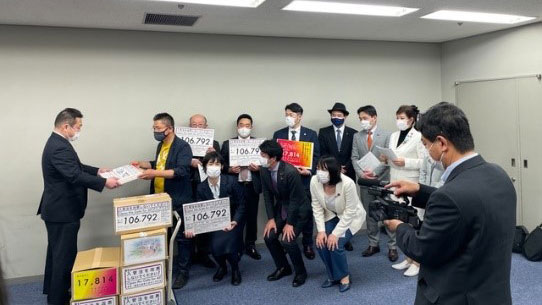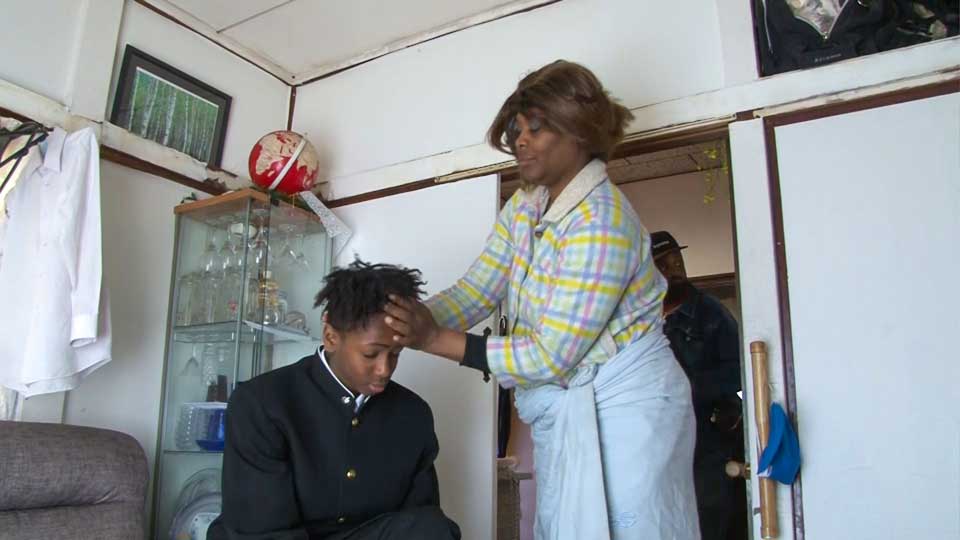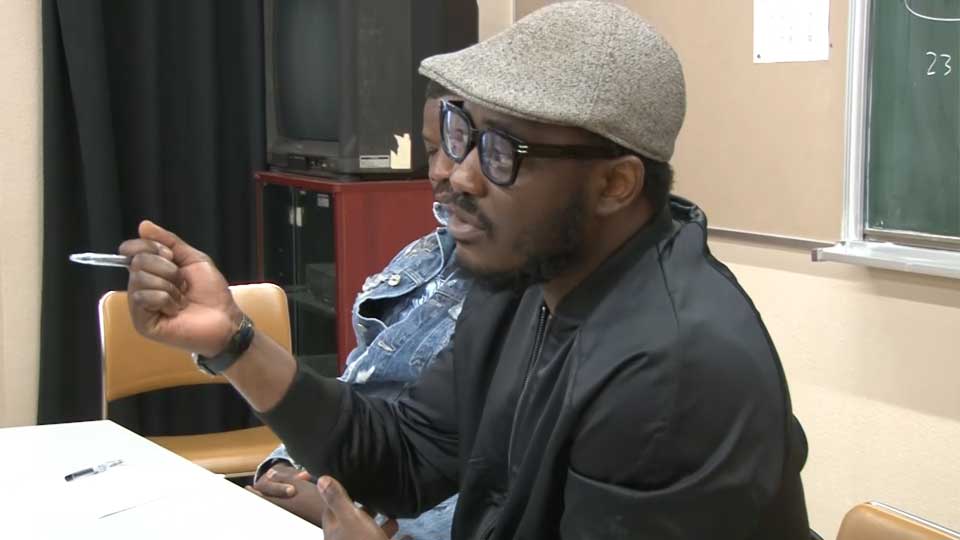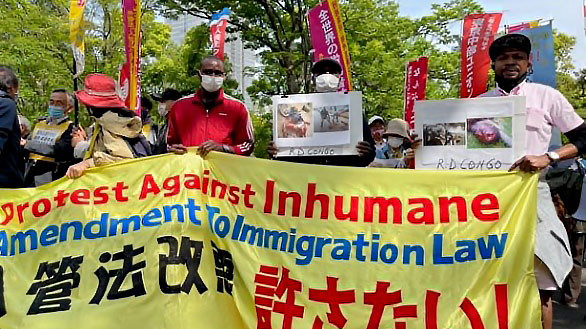Public demonstrations started outside the Diet as lawmakers began debating the revisions on April 16. Protesters are staging daily sit-ins outside the House of Representatives. The Solidarity Network for Migrants Japan presented the government with a petition containing 106,792 signatures demanding the draft be scrapped.

The Japanese government says the changes currently being discussed are designed to tackle the problem of long-term detention of foreigners in immigration facilities.
As one of the new measures, authorities would be given the power to forcibly deport asylum seekers whose refugee status has been rejected three or more times. They would be sent back to their home countries.
Some experts – including United Nations panels – claim that would violate international law, which forbids asylum seekers being sent to a country where they are likely to face persecution.
Japan accepts very few refugees. In 2020, it took in only around one percent of applicants, one of the lowest rates in the world. Many applicants fear for their lives if they are forced to return to their home countries. Among them is a female asylum seeker from northern Myanmar who asked not to be identified.
The country's military is engaged in an armed conflict with the Kachin minority group to which her father belongs. She has been interrogated in the past and threatened with a gun.
She fled to Japan in 2008 and has applied for refugee status three times. She says she fears for her life if she is forced to return. "This rule is telling me: 'Please go back to Myanmar and die'," she says.
Moloko Bikila escaped from the war-torn Democratic Republic of Congo in 2008. She has since had two boys. Moloko explains that her family has applied for refugee status three times, because she has never been told why her first two applications were rejected.
"I don't understand this law. Why, after 13 years of living here? My children know only Japan," she says. "It is not our fault we had to apply three times. It is the immigration system that forces us to do so."

An advisor to the Japan Immigration Service Agency, international law expert Abe Kohki, explains that if a bid for refugee status is rejected after thorough consideration, the applicant can be deported as they are not considered to be in any danger. But the Meiji Gakuin University professor adds that under the current Japanese system it is difficult for people to prove what kind of threats they face and the applicants are often not believed.
Abe, who has advised the government for a decade, says the screening system needs an overhaul. He and other experts are calling for an independent, specialized panel to evaluate cases.
Claims of exploitation
Some Congolese asylum seekers claim the Japanese system is exploiting them as they await their fate. A group of 15 met in Saitama Prefecture, near Tokyo, on April 18, to share their concerns about the current proposals.
They describe it as a form of exploitation: first they are given a temporary visa that allows them to accept manual labor jobs that many Japanese are unwilling to do. Then, after years of repeated refusals of their applications, their visa is taken away and they are subject to deportation or detention.
"The Japanese must know that we are fighting this law," says Richard, one of the Congolese asylum seekers.

“I have been working and paying taxes in Japan for eight years after escaping the Democratic Republic of Congo, and they tell me now I have to go back,” says Jacques Pongo Mingashanga who has been asked to leave by June 5. “Why did the Japanese government not tell us in the first place that it was not accepting refugees? We would have chosen another country.”

